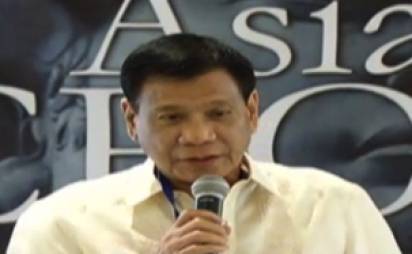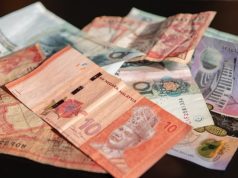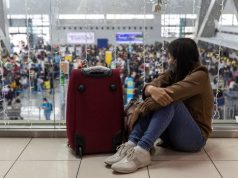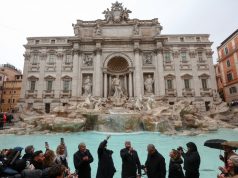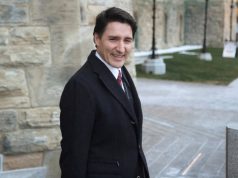Author Cesar Polvorosa Jr. is a business school professor of economics, world geography, and international business management in Canada. He is also a published writer in economics, business, and literature.
That men do not learn very much from the lessons of history is the most important of all the lessons of history. — Aldous Huxley
In another swing of the pendulum, the winds of geopolitical change swept the world once more from the late 1970s to the end of the 20th century. Many of the old despots like Marcos and Suharto were cast aside. The Philippines was a trailblazer for the people power revolts that stirred many countries. Subsequently, the two leading lights of the Philippine People Power Revolt; Corazon Aquino and Fidel Ramos became presidents. In the events that presaged the collapse of the Soviet bloc and its aftermath, entire swaths of countries chose market reformist leaders from Deng Xiaoping in China to Lech Walesa in Poland.
Now, in this dangerous time the pendulum of security concern has swung toward fears of terrorism in various world regions including Asia and the Philippines. For the latter there are also the grave issues of criminality and corruption. These highlight the mass appeal of a politician seen to be successful in fighting criminality vigorously in the case of the Philippines.
Filipinos simply consider the eradication of crimes as the most vital concern. This does not imply the inevitable rise to the presidency of an anti-crime politician as history is not deterministic. Rather, a politician who publicly prioritizes an issue close to the hearts of Filipinos and is perceived to be highly effective at it gains an advantage come election time.
There is basis for the fear, discontent, and restlessness of Filipinos regarding the prevalence of crime in the country. For instance, UN Office on Drugs and Crimes (UNODC) data indicate that intentional homicide in the Philippines remains at alarming rates: The average rate in 2010 is 9.2 per 100,000, and the 2013 rate is much higher than its neighbors’. In fact, deaths in the Philippines from intentional homicide in 2013 at 9,153 dwarfed the 1,386 of Indonesia, a country that has a population about 2.5 times the Philippines! High criminality that is linked with lack of inclusive economic growth and disturbing inequality level generated a clamor for leaders who will end criminality first as a sheer survival issue and then bring widespread prosperity.
Disillusionment with mainstream political leaders and their parties is currently affecting many countries. In my InterAksyon article of Nov. 24 on the Paris attacks (Fortress Europe: 8 Possible Changes), I noted that more Europeans recognize that the traditional political parties advocating for plurality and liberal immigration policies are failing to achieve prosperity and safety from terrorism. They are consequently gravitating toward extremist political parties that range from the far left “Dawn” of Greece to the far right “National Front” of France and “Pegida” of Germany. There is growing xenophobia and insecurity about their cultural identity being subverted by the flood of immigrants and refugees. There is palpable fear of more horrifying terrorist attacks. The trend in EU is toward a tightening of border controls and immigration. This current malaise comes in the heels of the prolonged economic slowdown of Europe during the Great Recession and people feel agitated to push for change. Does it sound familiar?
Revival of populism?
Recently, in what may herald another swing of the pendulum some populist presidents have emerged which is a backlash to the elitist and technocratic leaders of the past often seen as corrupt, ineffectual, and out of touch with the reality of everyday lives of their citizens. Some of these new populist leaders included Prime Minister Modi of India and President Jokowi of Indonesia. Populism is traditionally associated with Latin American leaders such as Juan Peron (Argentina) and more recently with Hugo Chavez (Venezuela) and Evo Morales (Bolivia).
In the case of the US, to the consternation and befuddlement of the American Establishment Donald Trump’s outrageous and seemingly beyond rhyme and reason comments have gained traction among the public. There is a method to his seeming madness. He has obviously plumbed the well of discontent among Americans especially on national security and terrorism fears, immigration and decline of the middle and lower middle classes. Wages have stagnated and inequality is rising in the US.
Timing is critical to the surge in popularity of Trump. He had been a presidential candidate before (2000). He was a less known personality then and his message about the dangers of immigration and disenfranchisement of the middle class would not be the vital issues of the day. His issues then on fair trade and debt just did not resonate. Now, just like the extremist parties in Europe, the public is more receptive to warnings about terrorism and rants about immigrants seen as failures of the Establishment parties. If Trump does become President the damage may become contained or limited due to strong US institutions. If a populist becomes a president of the Philippines can the weak institutions prevent him from morphing into an authoritarian ruler? The fragile Philippine institutions have failed before and it can happen again.
Peace and order is a beguiling vision and one must be vigilant against being lulled into complacency by initial success. The advent of Martial Law was hailed by some even as opposition members were hauled to jail for there was peace and order. It was a New Society and Filipinos needed discipline — until the despotic regime showed its true visage. Years later it would be revealed that many of the chaotic conditions such as bombings were created to justify the imposition of Martial Law. The cure was much worse than the disease.
The incalculable risk is that only a thin line separates populism from mob rule as a populist leader can mobilize and unleash masses of people to achieve political ends. At its worst the nation state can degenerate into prolonged bloody anarchy such as in the Reign of Terror of the French Revolution where thousands were sent to the guillotine with haste on mere suspicion of being opposed to the Revolution. As author Isaac Asimov stated which can be applied in this case as a lesson in governance, “violence is the last refuge of the incompetent” (Salvor Hardin,“Foundation”). All of the carnage in the name of security.
Philippine populism is far removed from the worst upheavals in history but is nevertheless a national tragedy. A worker told me just after the election of Erap Estrada to the highest office of the land that “we have chosen a highly intelligent person before as president when we voted for Marcos and look at the resulting mess. Now, let’s try someone who is dumb.” It was like jumping from the frying pan into the fire. One cannot right a wrong with another wrong.
The responsibility of Filipino voters
There is a void in the Philippine national political arena for a visionary yet effective leader. Such is a leader endowed with a clear vision for the country, has the highest commitment to principles and is also an effective manager of government affairs. English writer Samuel Johnson said it best, “Integrity without knowledge is weak and useless, and knowledge without integrity is dangerous and dreadful.” Who among the candidates now best embody the combination of high morals and ethics with excellent leadership, administrative and managerial skills — a true statesman that inspire?
Such a leader knows that the Philippines urgently need genuine reforms and is aware and prepared to confront and surmount the challenges ahead. As Machiavelli observed centuries ago, “There is nothing more difficult to take in hand, more perilous to conduct, or more uncertain in its success, than to take the lead in the introduction of a new order of things.”
Currency or relevance and sense of urgency of the Filipino public seem to favor Duterte now just as it is favoring Trump in the US or the alternative political parties in Europe. Thus, some of the burning issues now on the Duterte candidacy are: If he is elected as Philippine president will he be able to achieve peace and order for the country only at the cost of individual rights and freedom? Can success at the municipal level be replicated at the national level? How will Philippine extra-judicial practices at the national level affect international relations? If the term of six years is up will he say “it’s done” or will he succumb to the authoritarian temptation — just like so many in the past and decide that additional time is needed to finish the task?
It’s a manifestation of the deplorable state of Philippine politics that lost in the noise is a sensible public debate and discourse of the programs of government of the candidates. Instead, people are assailed with the possible spectacle of a slapping match between leading candidates Duterte and Roxas. What are the policies of the candidates? It is still early for an election that is months away but who among the voting population have at least some familiarity with the platforms of the candidates — or it does not matter at all?
The choice of leaders through voting is a fundamental right enshrined in democracy that carries tremendous moral obligation and great responsibility. Our choice of leaders is like a mirror that we hold to ourselves as it reflects our deepest fears as well as highest aspirations. The right choice of a leader can lead to progress in the fulfillment of a nation’s collective hopes and dreams. Based on history including that of the Philippines it is also a cautionary tale. The dream can also easily turn into a nightmare. History will be the ultimate judge.

